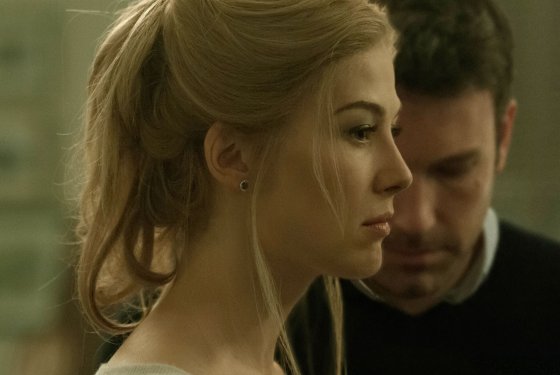Moore please
The real story in this category is not who will win (it’s Julianne Moore), but the lack star power in these films. As of the time of writing and according to BoxOfficeMojo.com, these are the grosses for the films (rounded to nearest thousand, all in US Dollars and current as of Feb. 22nd):
Gone Girl: $368,057,000
Still Alice: 6,485,000
The Theory of Everything: $98,679,000
Two Days, One Night: $6,584,000
Wild: $45,258,000.
That is an average of $105,012,600, $43,261,400 less than the Best Actor category average. Consider that only Gone Girl and The Theory of Everything (which is also a Best Actor nominee film) have grossed more than $70million, while only Foxcatcher has fallen short of that on the other side of the fence. Does this indicate that the studios need to advertise and show their female-led films more? Absolutely. Does this mean that the audience is more interested in seeing a male-led film? Possibly. Perhaps it is neither, and it is just that the films in this category are weaker than the other. Perhaps it is the biopic. Of the Best Actor films, four of them were based on real people. Only The Theory of Everything (again, shared with Best Actor) and Wild are based on real people. Perhaps it is the lack of shared films? Last year, three out of five films in this category were nominated for Best Picture. The Theory of Everything again is alone in that regard this year. For some reason, the films in this category seems almost forgotten already. Gone Girl made a huge splash, Still Alice will forever be remembered as that movie Julianne Moore won an Oscar for and The Theory of Everything for Eddie Redmayne’s possible win. The other two may just fade away, particularly Two Days, One Night, which never really appeared off European shores. It doesn’t feel the same about the Best Actor race.
Anyway, somebody is going to win this award (again, it will be Moore), so let’s discuss that.
Full disclosure: I have let you down horribly. I haven’t seen Still Alice, Two Days, One Night or Wild. I apologise, you shouldn’t have trusted me. Those films will be treated for their awards racing, not for the performances. I’m sorry.
Who else could have been nominated
Jennifer Aniston seemed like a sure bet right up until the nominations were announced. Marion Cotillard came from nowhere really to swoop in and replace her. Hilary Swank couldn’t build up enough momentum for her performance in The Homesman, Emily Blunt seemed content with a Golden Globe nomination for Into The Woods and Amy Adams missed out despite her strong reputation and performance in Big Eyes.
Who was nominated
Marion Cotillard – as Sandra Bya in Two Days, One Night
Felicity Jones – as Jane Hawking in The Theory of Everything
Julianne Moore – as Dr. Alice Howland in Still Alice
Rosamund Pike – as Amy Elliot-Dunne in Gone Girl
Reese Witherspoon – as Cheryl Strayed in Wild
Marion Cotillard
Why she will win: Cotillard is an incredibly actress who has barely put a foot wrong on screen. She’s won this award before, showing the Academy thinks fondly of her.
Why she wont win: Two Days, One Night has a domestic US box office of about $1.5 million, it hasn’t been seen by many, and the promotional DVDs probably found themselves at the bottom of the pile. Cotillard snuck in to this category surprisingly and she isn’t really a contender.
Felicity Jones
Why she will win: The Theory of Everything is the only film in this category nominated for a major award, meaning it will be larger in the mind of voters than others in this category. Jones put in a solid performance in the film, playing an annoyed, brooding wife just well enough that she didn’t leave the audience annoyed and brooding.
Why she wont win: Jones is more of a supporting performance than a lead in her movie. That hasn’t always hurt in major categories, but it might hurt her here. The Theory of Everything has funneled all its resources into Redmayne’s race, leaving Jones a little out in the cold.
Julianne Moore
Why she will win: Ding, ding, ding! Moore is a greatly respected actress who has served above and beyond for two decades. She’s been nominated for five Oscars, and this year everything had fallen into place for her to win it, plus from all reports she does a mighty fine job in front of the screen.
Why she wont win: Neil Patrick Harris offends George Clooney in the wrong way, and Clooney calls off the ceremony citing his powers as overlord of the universe. That’s the only reason why she wont win.
Rosamund Pike
Why she will win: It’s hard to remember a performance from any actor that has shaped their identity like Pike’s in Gone Girl. Before Gone Girl, Pike was a journeywoman actress best known for being the fourth (behind Halle Berry, Judi Dench and Madonna) most memorable actress in Die Another Day. Now she is Amy Elliot-Dunne. Conniving, loving, cold, hot, beautiful, deadly Amy Elliot-Dunne. Pike controlled Gone Girl in a way that it is impossible to imagine anybody else in the role.
Why she wont win: The Academy didn’t reward Gone Girl as much as many expected. It failed to register in Best Directing and Best Adapted Screenplay and the Academy has a record for passing over thrillers.
Reese Witherspoon
Why she will win: Witherspoon put herself back on track with a strong 2014. After the whole police drama thing, Witherspoon produced Gone Girl and starred in Wild, putting her back up near the top of American sweethearts.
Why she wont win: That story is nice, and her performance in Wild is nice too (apparently, I’m still sorry) but Moore has her fingerprints on the statue already.
Who could win: Rosamund Pike
Who will win: Julianne Moore
For more coverage of the 87th Academy Awards, click here.
